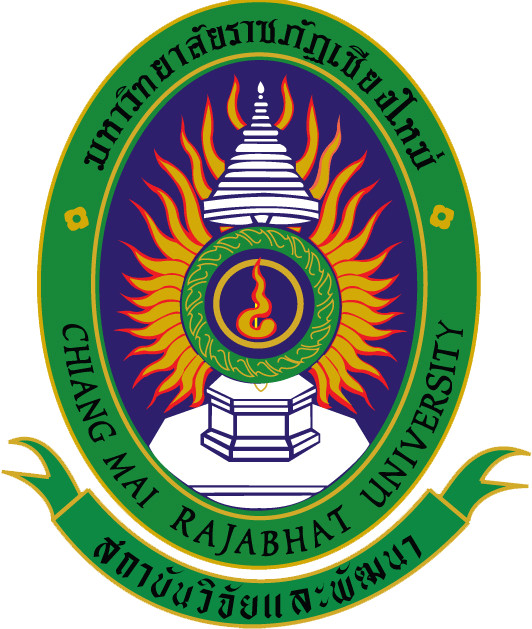
ระบบสารสนเทศงานวิจัย สถาบันวิจัยและพัฒนา มหาวิทยาลัยราชภัฏเชียงใหม่
Research Information System(RIS)
การพัฒนาครูในโรงเรียนแกนนำเรียนร่วมจังหวัดเชียงใหม่ด้านการจัดการพฤติกรรมของนักเรียนที่มีความต้องการพิเศษตามหลักการจัดการเรียนรู้ในศตวรรษที่ ๒๑
รองศาสตราจารย์ ดร.ศศิพินต์ สุขบุญพันธ์
คณะครุศาสตร์
คำสำคัญ :
เลขทะเบียน :
680-59-EDU-NRCT
บทคัดย่อ
วัตถุประสงค์ของงานวิจัยเพื่อ1) พัฒนาครูผู้สอนเด็กที่มีความต้องการพิเศษด้านการจัดการพฤติกรรมตามหลักการจัดการเรียนรู้ในศตวรรษที่ 21 2) ศึกษาผลการพัฒนาครูผู้สอนเด็กที่มีความต้องการพิเศษด้านการจัดการพฤติกรรมของตามหลักการจัดการเรียนรู้ในศตวรรษที่ 21 และ3) ศึกษาปัญหา อุปสรรค การพัฒนาครูผู้สอนเด็กที่มีความต้องการพิเศษด้านการจัดการพฤติกรรมของตามหลักการจัดการเรียนรู้ในศตวรรษที่ 21 กลุ่มตัวอย่าง คือ ครูผู้สอนนักเรียนที่มีความต้องการพิเศษเรียนร่วมระดับการศึกษาขั้นพื้นฐาน จังหวัดเชียงใหม่ จำนวน 36 คน โดยการคัดเลือกแบบเจาะจง (Purposive Sampling) เครื่องมือที่ใช้ในประกอบด้วย 1. กิจกรรมการพัฒนาครูด้านการจัดการจัดการพฤติกรรมของนักเรียนที่มีความต้องการพิเศษตามหลักการจัดการเรียนรู้ในศตวรรษที่ 21 2. แบบทดสอบความรู้ของครูด้านการจัดการจัดการพฤติกรรมของนักเรียนที่มีความต้องการพิเศษตามหลักการจัดการเรียนรู้ในศตวรรษที่ 21 3. แบบรายงานผลการจัดการพฤติกรรมของนักเรียนที่มีความต้องการพิเศษ 4. แบบสัมภาษณ์ความคิดเห็นของครูเกี่ยวกับปัญหาและอุปสรรคในการจัดการพฤติกรรมของนักเรียนที่มีความต้องการพิเศษตามหลักการจัดการเรียนรู้ในศตวรรษที่ 21 หาประสิทธิภาพของเครื่องมือโดยการพิจารณาความสอดคล้อง (IOC) โดยผู้เชี่ยวชาญ วิเคราะห์ข้อมูล เชิงคุณภาพโดยใช้การวิเคราะห์เชิงเนื้อหาและข้อมูลเชิงปริมาณ ใช้ค่าร้อยละ (Percentage) ค่าเฉลี่ย ( ) ค่าเบี่ยงเบนมาตรฐาน (Standard Deviation) และ t-test dependent ผลการวิจัยพบว่า 1. การพัฒนาครูด้านการจัดการจัดการพฤติกรรมของนักเรียนที่มีความต้องการพิเศษตามหลักการจัดการเรียนรู้ในศตวรรษที่ 21 ด้วยกิจกรรม UMTAR เป็นกิจกรรมวิจัยเชิงปฏิบัติการแบบมีส่วนร่วม จำนวน 5 กิจกรรมย่อยประกอบด้วย กิจกรรมที่ 1 สร้างความเข้าใจ (Understanding) พฤติกรรมที่ท้าทายของนักเรียนที่มีความต้องการพิเศษ กิจกรรมที่ 2 แนะนำแนวทาง (Method) การจัดการพฤติกรรมนักเรียนที่มีความต้องการพิเศษตามหลักการเรียนรู้ในศตวรรษที่ 21 กิจกรรมที่ 3 แนะนำเครื่องมือเพื่อใช้ตรวจสอบและวางแผนพัฒนาพฤติกรรม (Tools) กิจกรรมที่ 4 การวิเคราะห์ข้อมูล (Analysis) และกิจกรรมที่ 5 การรายงานผลการพัฒนาพฤติกรรมของผู้เรียน (Report) 2. ผลการพัฒนาครูผู้สอนนักเรียนที่มีความต้องการพิเศษด้านการจัดการพฤติกรรมของตามหลักการจัดการเรียนรู้ในศตวรรษที่ 21 โดยครูผู้สอนได้พัฒนานักเรียนด้วยการวิจัยในชั้นเรียนจำนวน 31 เรื่อง สำหรับนักเรียนที่มีความต้องการพิเศษ 38 คน โดยบูรณาการในรายวิชาและกิจกรรมลดเวลาเรียนเพิ่มเวลารู้ควบคู่กับการใช้เทคนิคทางจิตวิทยา ค่าเฉลี่ยของคะแนนความรู้ความเข้าใจของครูด้านการจัดการพฤติกรรมนักเรียนที่มีความต้องการพิเศษภายหลังเข้าร่วมวิจัยสูงกว่าค่าเฉลี่ยก่อนเข้าร่วมงานวิจัยอย่างมีนัยสำคัญทางสถิติที่ระดับ 0.01 3. ปัญหา อุปสรรคการพัฒนาครูประกอบด้วย ด้านตัวครู ด้านผู้ปกครอง ด้านการบริหารจัดการ ด้านสภาพความบกพร่องของนักเรียนและด้านงบประมาณ ครูให้ข้อแนะนำให้การจัดการพฤติกรรมให้ประสบความสำเร็จตามหลักการจัดการเรียนรู้ในศตวรรษที่ 21 ประกอบด้วย ความต่อเนื่องในการพัฒนาพฤติกรรมนักเรียนที่มีความต้องการพิเศษ การมีส่วนร่วมของครอบครัว มีผู้ช่วยหรือบุคลากรสนับสนุนและความร่วมมือระหว่างผู้บริหารและครูในโรงเรียน
Abstract
The objectives of this research were 1) to develop the teacher of children with special needs in behavior management based on learning in 21st century 2) to investigate the result of the teacher development in behavior management based on learning in 21st century and 3) to examine the obstacles and problems of the teacher development in behavior management based on learning in 21st century. The purposively selected sample was 36 teachers teaching children with special needs in Basic Education schools in Chiangmai province. The research instruments included 1) A teacher development activity in behavior management based on learning in 21st century 2) A teacher test in behavior management based on learning in 21st century 3) The report of behavior management based on learning in 21st century activity and 4) teacher interview protocol regarding the obstacles and problems of the teacher development in behavior management based on learning in 21st century. Index of Item Objective Congruence (IOC) were employed for those instruments for presenting their efficiency. In addition, reliability was used for checking the teacher test. Qualitative data was analysed by content analysis whereas percentage, mean, standard deviation, and t-test dependent were utilized for quantitative numbers. The research results were as follows; 1. UMTAR activity was employed to develop the teacher of children with special needs in behavior management based on learning in 21st century. UMTAR activity was included five sub – activity of participatory research action. The first was Understanding activity regarding the challenging behavior of student with special needs whereas the second was Method activity aimed to suggest the method of manage the challenging behavior of student with special needs based on learning in 21st century. Tools activity was the third which introduced the teachers to select the tools to asses and plan to develop the student’s behavior. The forth activity was Analysis which suggested the teachers to analyze the collected data. The last activity was Report which aimed for presenting the result of the student’s behavior. 2. The result of the teacher development in behavior management based on learning in 21st century was found that those teachers were develop the student with special needs through the action research. There were 31 action researches and 38 students with special needs in total. Those action researches integrated either the subjects or the school Moderate class, More Knowledge’s activity along with the psychological techniques. The mean score of teacher’s knowledge of behavior management based on learning in 21st century after participating in this study was higher than the mean score before participating in this study. It was found significantly different at 0.01 level. 3. Obstacles and problems of the teacher development in behavior management based on learning in 21st century were the teacher’s workload, parents, school management, the variety of student’s disability and the budget. The teachers suggested the consistency of behavior management, parental involvement, personal assistant, and the collaboration between the administrator and teachers would support the successfulness of behavior management for children with special needs in 21st century.
ไฟล์งานวิจัย
อยู่ในระหว่างการปรับปรุงเนื้อหา495 15 พ.ย. 2560
สำนักงานคณะกรรมการวิจัยแห่งชาติ (วช.)
196 Paholyotin Rd., Chatuchak, Bangkok 10900
0-2561-2445